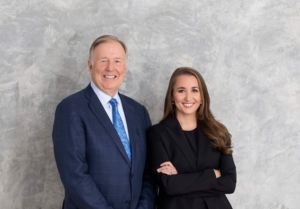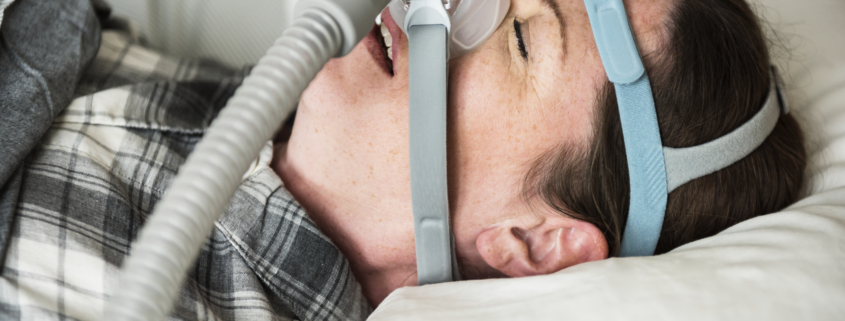Phillips Cannot Seem to Get its Sleep Apnea Recall Right
A company that has issued a product recall already has enough legal risk from the fact that they may have sold a defective product that injured scores of people. When they issue recall instructions, they should certainly be correct. They are only compounding their legal issues if they cannot properly execute their own recall. That is exactly what has happened to Phillips Respironics, as it has been criticized by the Food and Drug Administration for bungling its own product recall.
Phillips CPAP and BiPAP Users Were Injured by Defective Devices
Phillips was forced to recall hundreds of thousands of devices used to treat obstructive sleep apnea. The problem was that Phillips used a piece of foam to insulate against noise when the device was placed on a flat surface, such as a nightstand. For many users, this foam degraded over time, and the particles made their way into the lungs of patients using the machine. The polyurethane foam contains numerous toxins that patients should not be inhaling. Some patients suffered from the following side effects:
- Headaches
- Airway irritation
- Permanent lung damages
- More serious life-threatening injuries that come from breathing in particles of toxic foam
- Cancer-causing effects from inhaling chemicals
The Repair Kit Provided Was No Safer than the Existing Defective Device
Phillips’ recall solution provided to customers seemed to be a quick fix designed to move as much of the problem as it could out of its own hands and into the consumer’s. The company provided a silicone foam repair kit to patients for them to remove the damaged foam from their CPAP machine and replace it themselves. Theoretically, this may have worked if the silicone substance itself were safe. However, this recall was an instance in which Phillips was replacing one defective solution with another.
The FDA was clearly alarmed by the fact that Phillips apparently knew of the degradation problem with its sound abatement foam for years but kept selling the product. The FDA decided to take a more active and hands-on approach to the recall, conducting its own investigation through site visits. The agency wanted to learn more about what happened.
The FDA Is Learning the True Scope of the Problem
One visit that the FDA made was to the manufacturing plant where the silicone insert was being made. During this visit, the FDA learned that the silicone-based foam might be no safer than the polyurethane foam that sickened and injured scores of patients.
The specific problem was that the silicone insert failed one key safety test of its own. This test revealed that the silicone insert could release its own “chemicals of concern” that patients could inhale in their sleep. These are volatile organic compounds that can sicken patients.
Phillips had conducted its own testing of the silicone inserts, and its results did not have similar findings. As a result, the FDA has ordered Phillips to conduct independent third-party testing on the safety of the silicone inserts. In the meantime, the FDA is not recommending that patients discontinue their use of the machine, given the critical (and potentially life-saving role) that these CPAP machines perform.
Patients are not left with any alternatives that have been tested and confirmed to be safe. It would be extremely dangerous for a patient with obstructive sleep apnea to stop using a sleep apnea machine altogether. Yet Phillips’ mishandling of the recall and providing a solution that is still potentially dangerous prolongs the problem for patients and makes it worse.
The FDA Has Been Very Critical Of Phillips
The FDA has specifically noted that Phillips’ efforts to notify its customers of the recall to date have been “inadequate.” In March 2022, the FDA took two actions that showed its frustration with Phillips:
- On March 10, 2022, the FDA issued a notification order to Philips Respironics that directed the company to notify its customers of the June 2021 recall. To date, the FDA found that the company’s efforts to notify patients of the recall were “inadequate.”
- On March 14, 2022, the FDA added information to its FAQs on its website that expressed concern with how Phillips is prioritizing the distribution of replacements to its customers. The first-come first-serve may not adequately address the dangers that some patients face. Some patients may be forced to continue using a dangerous product while they wait for a replacement part to be delivered.
At this point, the FDA is still trying to determine whether Phillips violated the Federal Food, Drug, and Cosmetic Act or any of its implementing regulations. The FDA has already conducted an inspection, and it is reviewing the results of the inspection.
None of this bodes well for Phillips in its attempts to defend against the growing number of lawsuits filed by people who were injured by its sleep apnea CPAP and BiPAP machines. There is mounting evidence that the company knew about these defects for years and did nothing to recall the product from the market until the company had a new line of products ready to go.
Call a Phillips Sleep Apnea Lawsuit Attorney
If you or a loved one have been using a Phillips Respironics sleep apnea machine and have sustained the injuries described above, you may be entitled to financial compensation. Hundreds of people have been filing product liability lawsuits against Phillips, and evidence is emerging that Phillips knew about this issue for years. Call the attorneys at Blizzard Greenberg at (866) 560‑1867 or contact us online to schedule your free initial consultation.














